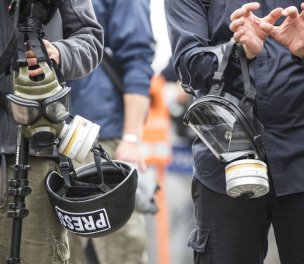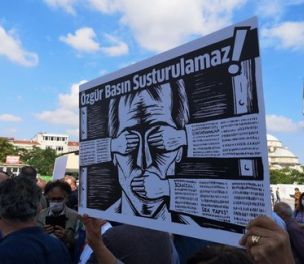Photo: Journalists' Union of Turkey/Twitter
Journalists gathered today (October 3) in İstanbul to protest the "disinformation bill." Despite objections from journalists and professional organizations, the parliament will tomorrow discuss the bill proposed by the government "to combat the spread of disinformation."
In front of the post office building in Sirkeci on the city's historic peninsula, members of the İstanbul Branch of the Journalists' Union of Turkey (TGS) demanded the bill be called back. The police, present during the action, had already notified the head of the TGS, Banu Tuna, that they would not be allowed to enter the building.
The bill has been controversial since its conception. On May 27, MPs of the ruling Justice and Development Party (AKP) and their allies, the Nationalist Movement Party (MHP), submitted a draft bill to criminalize disinformation.
The law will place further restrictions on online news websites and social media platforms. It also includes a prison term of one to three years for publicly distributing misleading information.
Control over digital media has been ongoing for many years in Türkiye. For example, Law no. 5651, adopted in 2007, intended to guard internet users against illegal and harmful online content, granted public prosecutors to enforce bans on websites within 24 hours by a court or administrative order. Within the first two years of the enaction of the law, 2,500 websites had been blocked by the bill, according to the Telecommunications Communication Presidency (TİB) figures.
"Control and censorship"
What constitutes false information remains, however, rather vague, giving rise to possible misuse of the proposed legislation. Gökhan Durmuş, head of the Journalists' Union of Turkey (TGS), said in an interview with bianet on September 29 that although disinformation is a problem in Türkiye, the law will be used not to prevent disinformation but for control and censorship.
Banu Tuna, head of the TGS branch of İstanbul, has similar concerns. While speaking in front of the post office, she affirmed, "The government will decide whether the shared content is true or not."
She said that in the build-up to the 2023 elections, the government is trying to "suffocate and pressure" news sources and journalism.
Through the new legislation, the Printing Press Committee (Basın İlân Kurumu) will receive broad powers to give both fines and penalties to newspapers and internet news sites. Similarly, in recent years, the Turkey's Radio and Television High Council (RTÜK) was granted more powers, which allowed them to regulate platforms like Netflix—making it a 'the police stick on television and radio'.
Crackdowns on Türkiye's digital freedom and frequent prosecuting and jailing journalists have led the country to be classified as 'Not Free' by Freedom House and ranked 153/180 by Reporters Without Borders. (WM/VK)




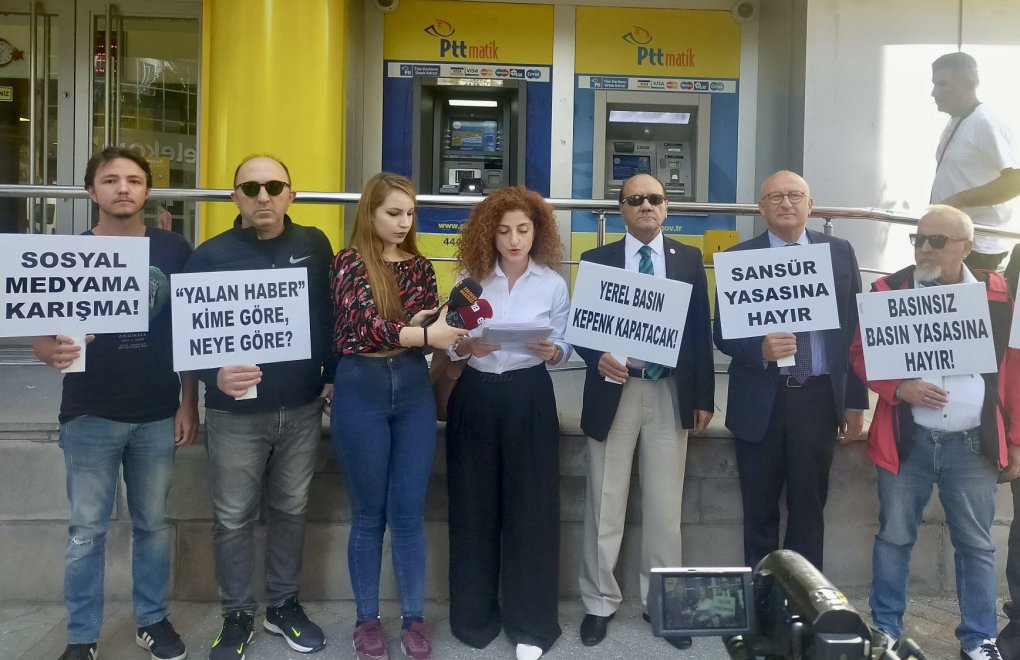


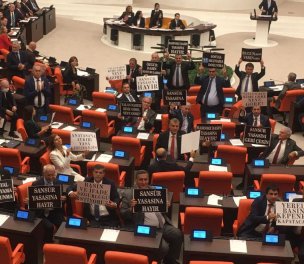
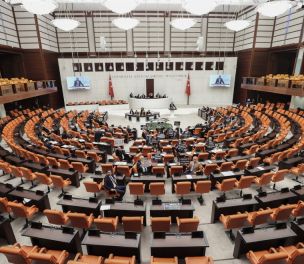
sa.jpg)



